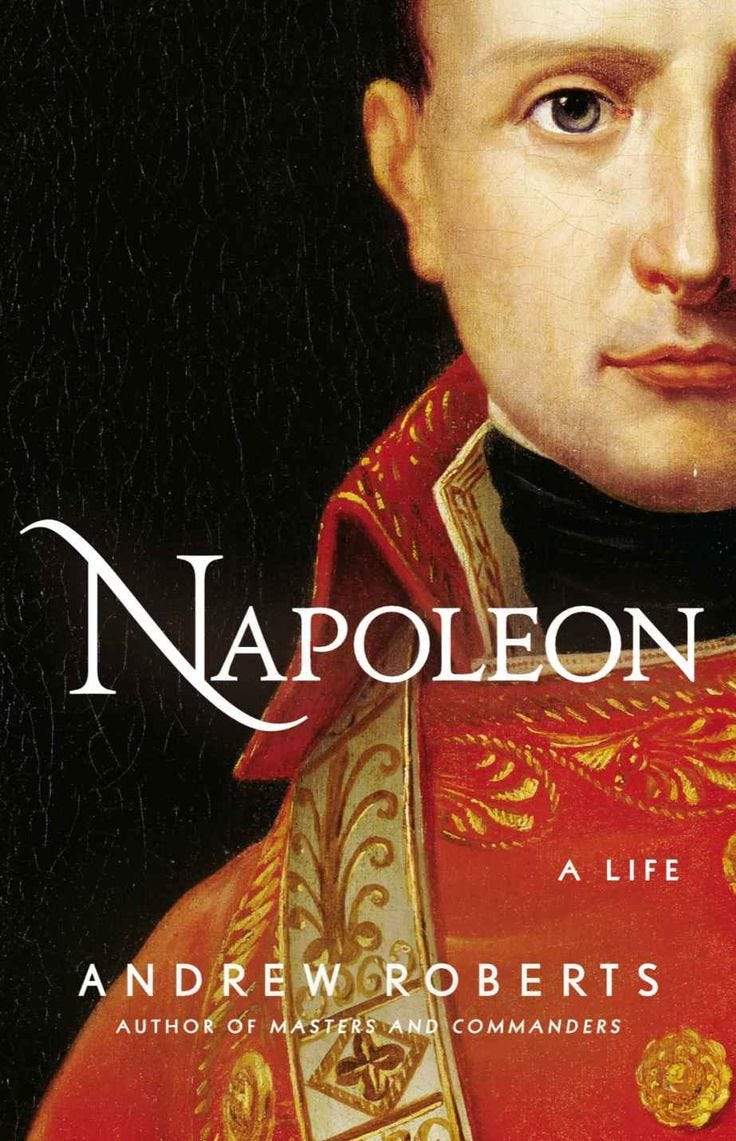Dangerous Book Club: Napoleon: A Life by Andrew Roberts
The reduction of great men into cheap caricature
Welcome to the first edition of the Write & Lift, no-read Book Club. If you would like to get access to book club essays and join our weekly discussion groups, upgrade your membership below. For paying members, the link to this week’s meeting is at the bottom of the essay.
The Contradictions of Great Men
There is a tendency for historical reductionism when we examine the lives of great men. In most cases, this is because very few of us will ascend into this immortality ourselves. We might as well be studying quantum physics. Great men are not objectively good or bad men. Napoleon, Alexander the Great, Marcus Aurelius, and Winston Churchill, existed on a stage that is alien to most of humanity, and on that stage, made decisions that reverberated throughout history. A simple “yes” or “no” for the great man of history, is often the only difference between being labeled a despot or a savior. Scrutinized by millions; pilloried as a tyrant or praised as a savior, the great man exists as an outlier. Between the simplification, propaganda, and starry-eyed praise of the great man, the truth of their character, ambition, glories, and failures become lost. And because most of us are fed a distillation of the great men’s stories through short college lectures or online content, they become caricatures of our own political dysfunction.
I chose Andrew Roberts’ “Napoleon: A Life” after hours of research. I didn’t want the claustrophobic political assumptions of today to cloud my understanding of Napoleon. I didn’t want the recent Ridley Scott film to “tell me” who this man was; the man who grabbed Europe by the throat and found himself stranded on a remote island in the South Atlantic within twenty years. I didn’t want to be moralized or spoken to like a child. I wanted an account of Napoleon's life, with the context of his time preserved, drawn from primary sources and the man’s letters. I wanted a story that does justice to the triumph and downfall of one of history's most enigmatic and controversial leaders. And in Andrew Roberts' book, I found it.
In his research, Roberts visited 53 out of the 60 battlefields Napoleon fought on during his career and even traveled to the distant island of St. Helena, where Napoleon spent the last six years of his life. Roberts also referenced many of the 33,000 personal letters made available to historians in recent years after being locked away in the Napoleonic Archives.






